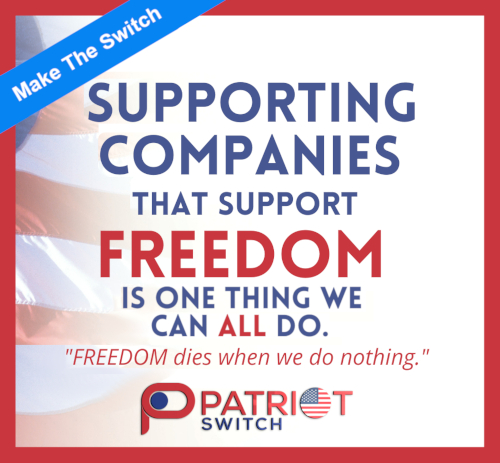On Sunday President Joe Biden’s commerce chief Gina Raimondo said the government is looking to repeal tariffs on certain goods to curb the hottest inflation Americans have seen in nearly four decades.
This is good news. Tariffs are simply taxes on imports from other countries that make goods more expensive, so it’s encouraging to hear the White House is exploring lifting them in some sectors.
“I know the president is looking at that,” Raimondo said during an interview on CNN’s “State of the Union.” “There are … products—household goods, bicycles—[where] it may make sense.”
“Why does it seem the Biden administration is consistently playing clean-up on these problems that are playing out exactly as many experts forecast they would?”@jaketapper presses @SecRaimondo on the inflation and baby formula problems in the US. @CNNSotu #CNNSOTU pic.twitter.com/0bLi5AXWDa
— CNN (@CNN) June 5, 2022
Why Lifting Tariffs Makes Sense
As an astute observer pointed out in April, lifting tariffs and liberalizing trade would have an immediate positive impact on Americans’ wallets. A March paper published by the Peterson Institute for International Economics estimated that “feasible” tariff reduction could reduce inflation by 1.3 percentage points, saving the typical US household $800 a year. (That’s like a stimulus check every year.)
It’s clear that slashing tariffs is good economics, but it’s worth noting this move would have a bonus for Biden. As Bloomberg notes, the bulk of the tariffs the Biden administration is weighing involve the $300 billion in duties President Trump slapped on China, the US economy’s biggest rival.
By lifting the Trump-era tariffs, Biden could ease inflation and strengthen the economy, all while sticking it to his predecessor. Unfortunately, the White House doesn’t seem dedicated to the policy. While the White House lifted one tariff on Monday, Monteiro makes it clear two very important products are off the table.
“Steel and aluminum—we’ve decided to keep some of those tariffs because we need to protect American workers and we need to protect our steel industry; it’s a matter of national security,” said Raimondo, who has praised Trump’s tariffs on China in the past.
The Biden Administration is here accepting Trump’s economic populism, suggesting that the steel industry can’t survive without government favoritism. The reality is that US steel production has remained remarkably consistent for decades regardless of US tariff policies.
While it’s true China has ramped up steel production, claims that Chinese “steel dumping” was or is some kind of existential threat are silly. In 2018, the year before Trump imposed his 25 percent tariff on steel, the US produced 88 million metric tons of steel. That same year, the US imported 30 million metric tons. China accounted for a grand total of 740,000 metric tons of those imports, trailing India, Taiwan, Germany, Japan, Turkey, Russia, Mexico, South Korea, Brazil, and Canada.
So what is the purpose of keeping the steel tariffs if not national defense? The economist Ludwig von Mises offered insights on this front.
“The interests of every firm can be favored by all kinds of privileges granted to it by government,” Mises wrote in Human Action. “Selfish group interests may impel a man to ask for protection for his own firm. They can never motivate him to ask for universal protection for all firms if he is not sure to be protected to a greater extent than the other industries or enterprises.”
What Mises is describing here is plain old-fashioned cronyism. The benefits of tariffs are concentrated on the protected industry; the costs, however, are widely dispersed.
This makes for a sweet deal for the United Steelworkers, who endorsed Biden in 2020 (much to Trump’s chagrin, no doubt, after he protected their industry), but as Bloomberg noted, it does so at the expense of virtually everyone else.
“While some businesses have benefited from the tariffs protecting them from Chinese import competition, companies that use the goods as inputs in areas including manufacturing have been hurt,” notes Bloomberg editor Ana Monteiro.
Politics Still Trumping Economic Sense
While interviewing Raimondo, Jake Tapper pointed out that as recently as six months ago she and other White House officials were calling inflation “a short term” problem.
Raimondo blamed inflation on various other factors including Putin’s invasion of Ukraine, the Fed’s massive money pumping, and supply chain disruptions—all of which are responsible for the 40-year highs in consumer prices. But she said that the White House is now taking inflation quite seriously.
“We will get inflation under control,” Raimondo said.
The Biden administration is finally talking the right game. But their hesitancy to lift steel tariffs shows they are still more concerned about politics than lowering consumer prices.
This article by Jon Miltimore originally appeared at FEE.org and is republished with permission. ©All rights reserved.
- Natural Immunity Offered More Protection Against Omicron Than 3 Vaccine Doses, New England Journal of Medicine Study Finds - July 18, 2022
- Yes, the Products You’re Buying Are Getting Smaller—Even Though Prices Are Not - June 18, 2022
- Biden Administration Refuses to Budge on Trump’s Steel Tariffs, Despite 40-Year High Inflation - June 18, 2022
JOIN US @NewRightNetwork on our Telegram, Twitter, Facebook Page and Groups, and other social media for instant news updates!
New Right Network depends on your support as a patriot-ran American news network. Donate now


